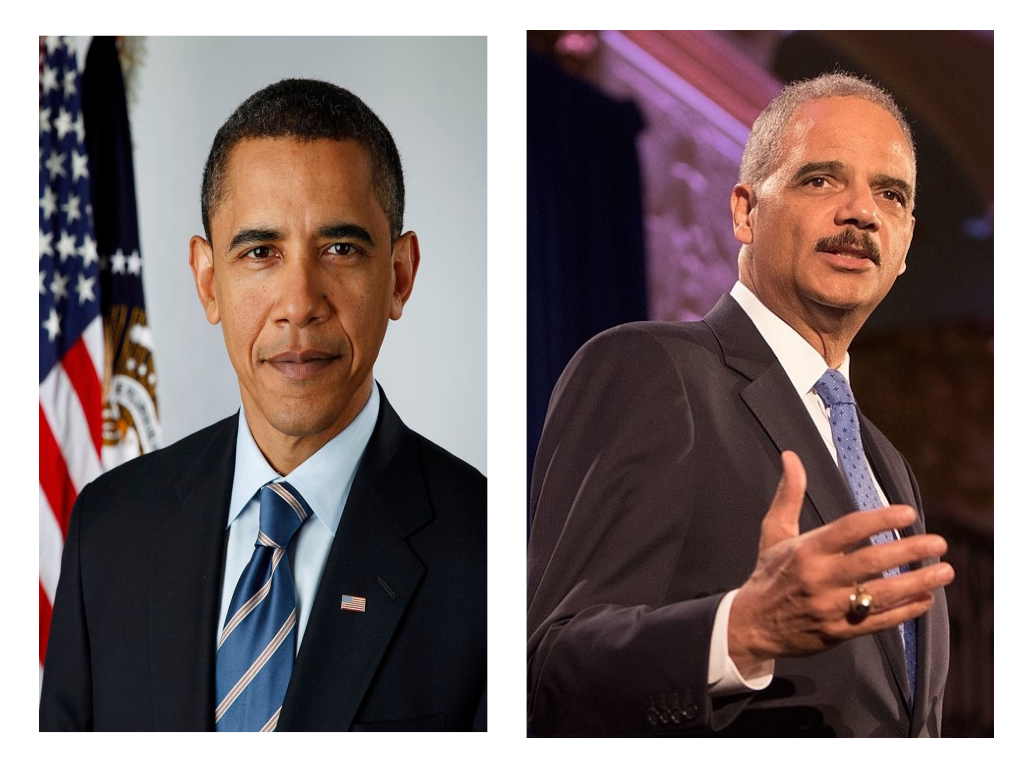[ad_1]
In 2014, former President Barack Obama launched My Brother’s Keeper Alliance (MBK) to support the advancement of young men of color in America. Since launching the national program, he has kept his promise to advocate for the needs of boys and young men. And last week, he and Eric Holder, former attorney general spoke out about the many challenges young men of color are facing amid the COVID-19 pandemic during an MBK conference call.
NBC News recently reported that during the call Obama and Holder spoke candidly about the resources young men of color need to come out on the other side of the pandemic prepared to adapt to whatever new normals are ahead of them. They also spoke about youth and law enforcement.
“It’s fair to say that has been true throughout American history, when crises hit the country at large, you can be sure that it will be that much tougher on folks who were already struggling before the crisis hit,” Obama said to leaders and young men on the call.
Access Matters
Some of those struggles include the lack of access to quality healthcare, high-performing schools, and being marginalized. As cities and states anticipate more economic challenges as it relates to educational programming, Obama advised leaders that now is not the time to put the needs of young people on the back burner.
“There are difficult times ahead,” Obama added, “but this is not the time to abandon young people. In some communities, you already had high unemployment, high rates of dropouts and disproportionate rates of violence,” Obama said.
All of that factors into how communities are funded and supported over time.
“And you can’t convene and bring people together right now. In some cases, financing your operations is going to be difficult as philanthropies are forced to shift resources … and schools are closed, which leaves a lot more time for young people to be alone and isolated and to lose some of the learning they acquired,” he added.
More than 55 million students are home from school—and access to remote learning is a real concern for students who are impacted by the digital divide, have unstable households, and those who live in violent areas.
“If they fall further behind, they will have that much more trouble finishing school, getting a foothold in this economy, and because of idleness may get shunted into the criminal justice system, and it’s going to be much harder for them to catch up,” said Obama.
Policing in Black Communities
As it relates to youth and law enforcement, Holder said, “Building trust has been important, like we did at the federal level, between communities of color and law enforcement.”
Trust is key. Unfortunately, many young men of color don’t trust or believe in authority for a number of reasons.
To that point, Holder said, “If you have people talking with each other and interacting with each other, it’s hard to demonize someone you know. COVID-19 complicates this,” Holder added. “But it is going to pass, and we are going to be back where we were, and let’s be honest, it was not a good place. The whole problem of implicit bias will still exist. We need leadership at the national level.”
Since the call, there have been several videos of black men and women in low-income communities being brutalized and mistreated by law enforcement leaving many to revive the conversation about policing in the black community.
Additionally, Obama made it clear that leaders in government must do more to support young men during these unprecedented times. In conclusion, Obama ended by expressing his gratitude for their unwavering commitment to creating pathways.
“Too many of our young men have been historically left behind. If we can give them a hand up, if we can give them mentorship and tools and interventions and resources and love and support, not only can they succeed for themselves, but our communities and our country will be stronger for it,” said Obama.
To read more about how COVID-19 is impacting the black community, click here.
[ad_2]
Source link

